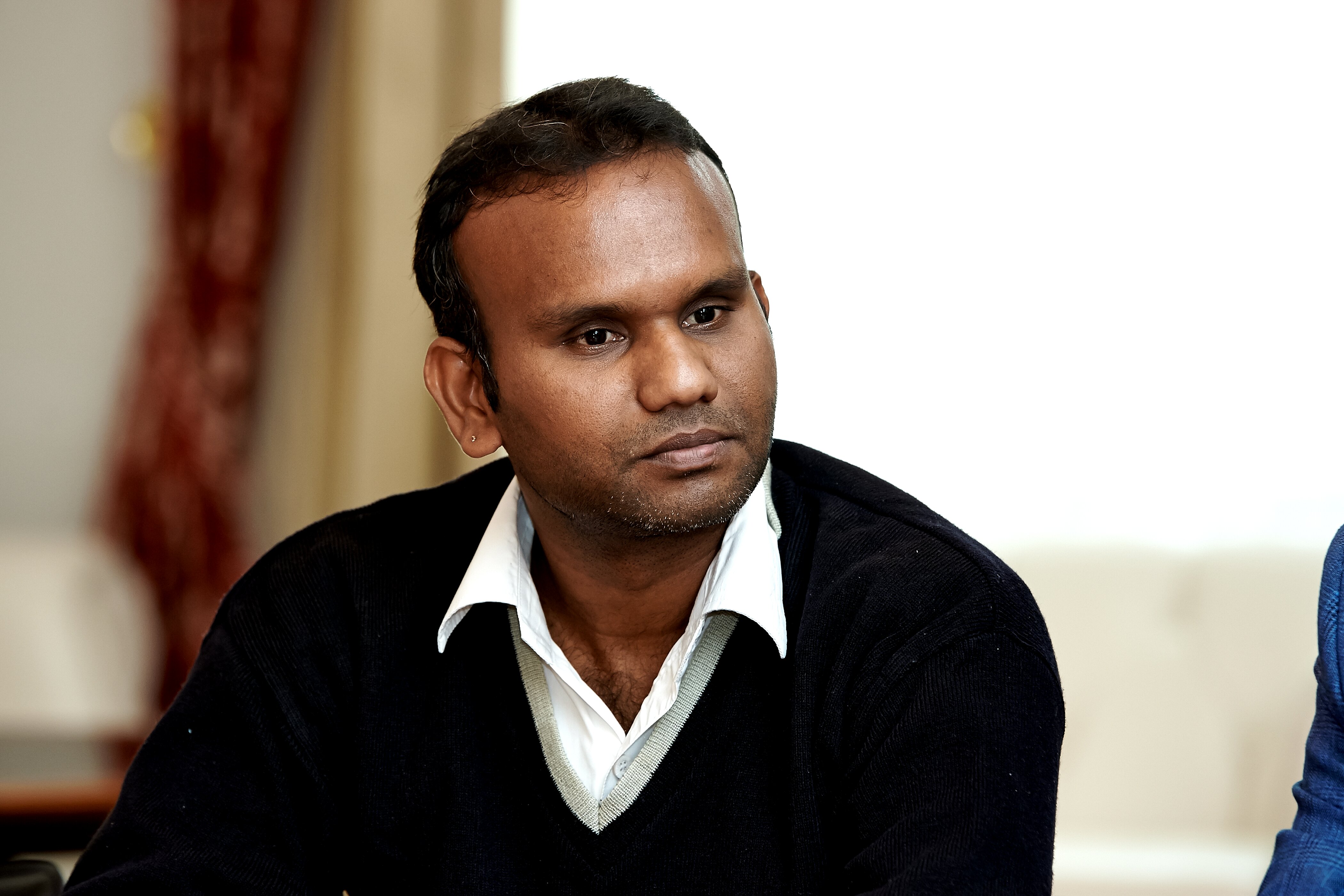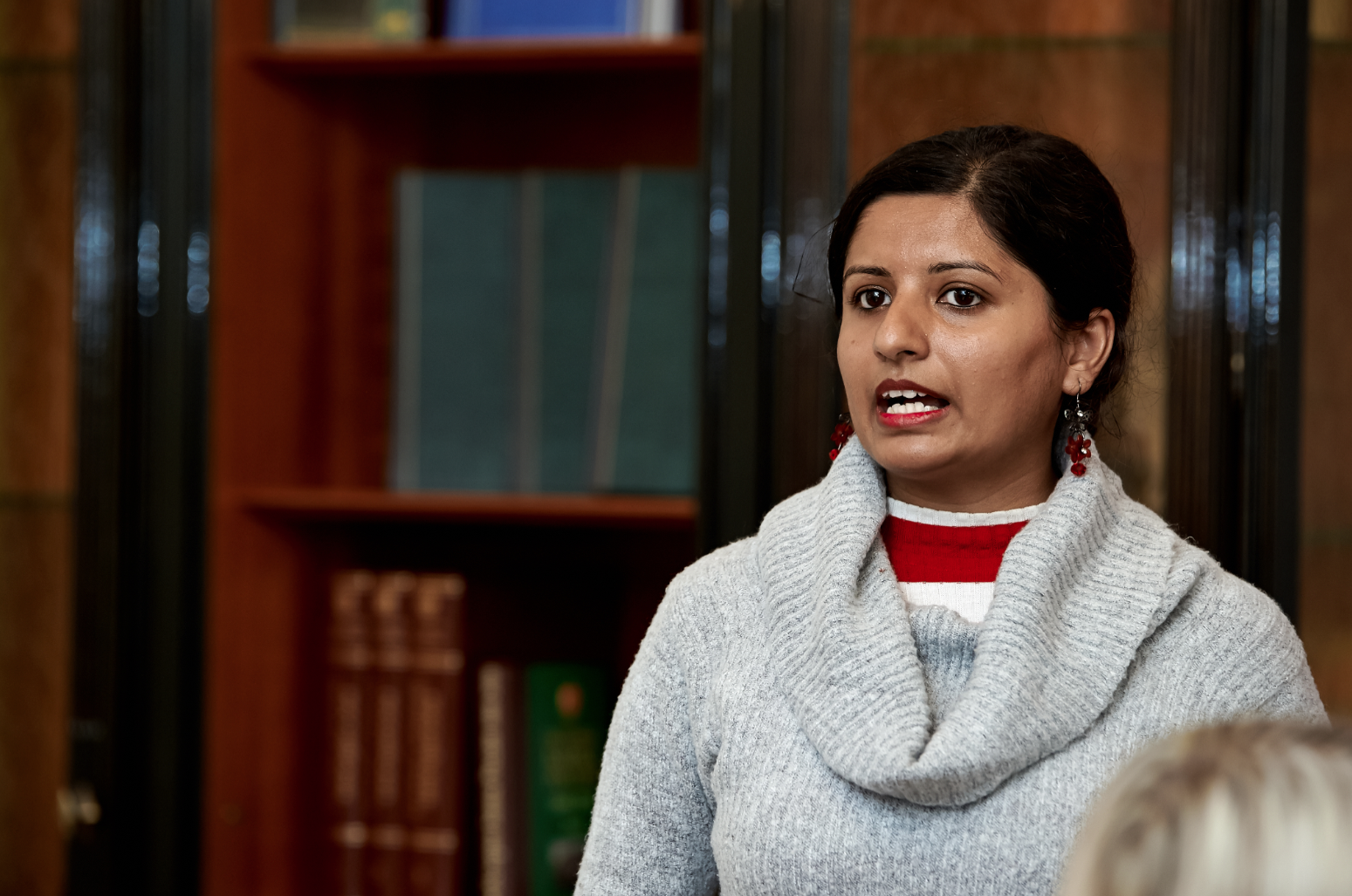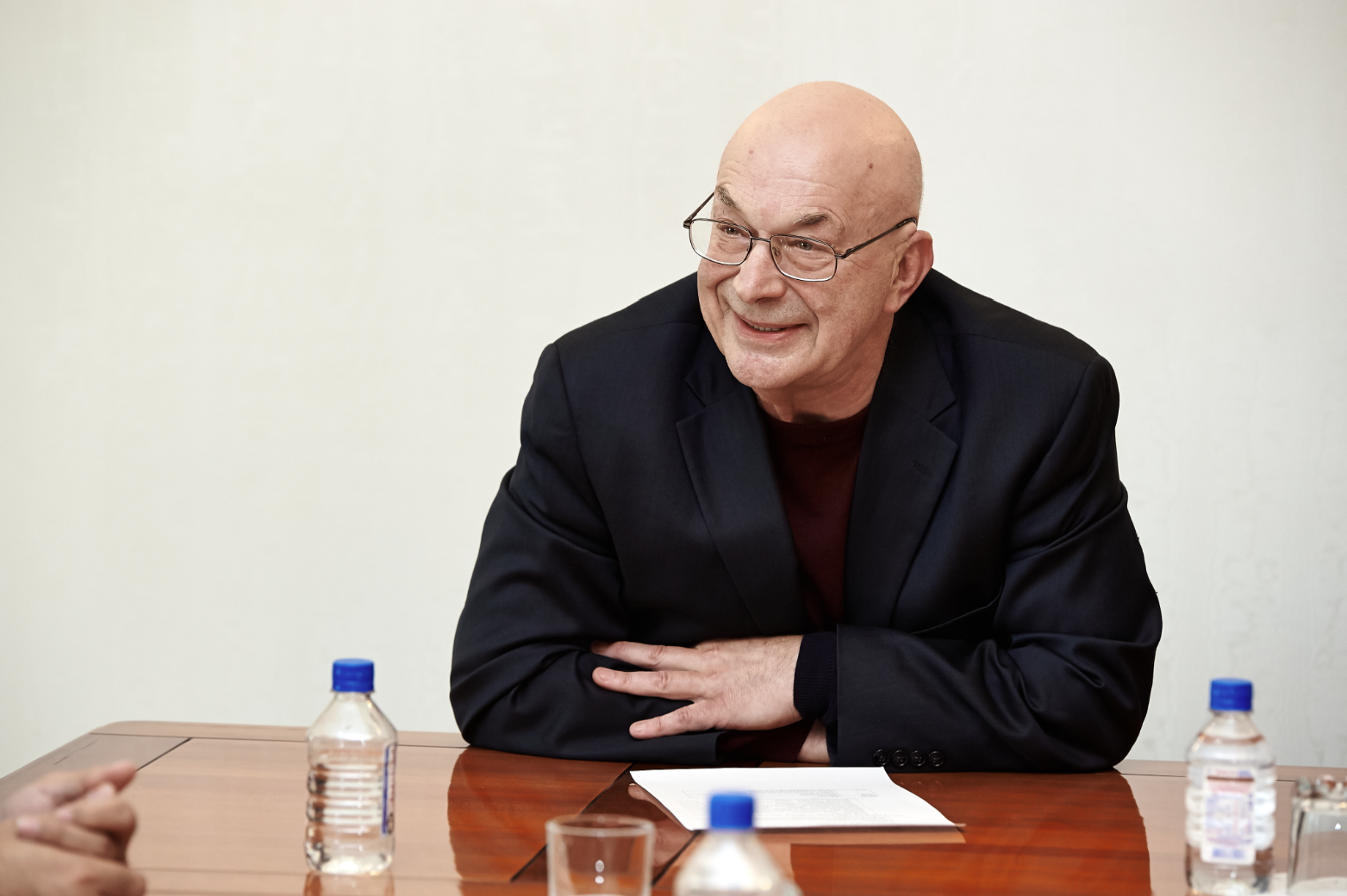
A meeting with the postdoc candidates of SFU.
Press PhotoFrom December 2015 to March 2016, the Siberian Federal University (SFU) in Krasnoyarsk (2,100 miles east of Moscow) held an open competition for young scientists with a PhD. More than 30 applications were received and seven foreign scientists were finally able fill the vacancies for SFU researchers.
At a meeting with the winners of SFU, Rector, academician Yevgeny Vaganov confirmed that had they selected the best and most suitable academics for the development of the leading areas of science. "All of them have signed a three-year contract, the work involves research, but possibly also teaching. As a result, the contract may be extended,” said Vaganov.
As he admits, in spite of the fact that Krasnoyarsk was a city closed to foreigners for a long time and is little known among foreigners, the SFU received many applications. "It was the first contest, and we plan to increase the number of postdocs. This is the most active part of the young research contingent," he said.
"I saw an ad about the contest on the SFU website, applied and came here. In Krasnoyarsk, the nature is very beautiful, and the people are open. At the moment I can hardly speak Russian, but, nevertheless, I work quite well,” said Indian postdoc Venugopal Nakkala who is currently a researcher at the laboratory of nonlinear optics and spectroscopy at SFU.
 Venugopal Nakkala / Press Photo
Venugopal Nakkala / Press Photo
He came to SFU to be engaged in the developments in the field of solar cells: "Over the past decades in the solar cells industry they use expensive materials made of silver or gold. We are exploring the possibility of using nano-plasmonic materials. This will reduce the cost of the process by many times.”
"This is not the first time that I have come to Siberia; I’ve been here before and made friends with the local scientists, and they advised me to apply to participate in the competition. What amazes me the most in Siberia is the nature – it is really amazing, there are a lot of trees. In addition, there is a developed infrastructure and you can work on the university’s base," said Alberto Arzaka from Spain, whose scientific work is related to the study of tree rings.
 Alberto Arzaka / Press Photo
Alberto Arzaka / Press Photo
"Though all the work is conducted in English, in September I plan to start learning Russian because it is useful to me in personal communication. I’m not ruling out the possibility of staying in Russia, everything will depend on how the planned work will progress during the three years. "
Abolhasem Tohidpur came from Australia, but he is Iranian. He has been in Russia for one and a half years, and has already managed to get acquainted with the cold Russian winter, "Once I tried to ski, but I nearly broke my leg, and now prefer to just watch my Russian friends ride while I drink delicious coffee, which they treat me with," he said.
 Shubhra Pande / Press Photo
Shubhra Pande / Press Photo
"It is very cold in Siberia, but people have warm hearts, and I really like it here, despite the fact that I left India for the first time," said young Indian scientist Shubhra Pande. "I have chosen to continue my career at the SFU, because it is a center of science and higher education, and the university also contributes to scientists’ productive work."
By conducting experiments on laboratory mice, Pande is looking for a way to extend life, by studying protein production using the biofluorescent method.
Many universities around the world have mastered the practice of engaging foreign experts to work and teach on the basis of grants and special competitions.
In launching the competition, the SFU made a bid to search for talent in order to attract young and active researchers from around the world. Postdocs could be no more than 35 at the time of applying for the research vacancies.
"The requirements for the candidates were serious, such as the availability of publications in journals indexed in the Web of Science and Scopus, but also the conditions the universities offered were quite good," said rector Yevgeny Vaganov.
 Yevgeny Vaganov / Press Photo
Yevgeny Vaganov / Press Photo
"It's not so much about the salary, but about the opportunity to work on unique equipment and under the guidance of scientists known in their field far beyond Russia. As practice shows, this is the leading motive for a young scientist who has decided to go to a Siberian university."
The second Postdoc SFU competition is to be announced in January 2017.
Partner generated content
All rights reserved by Rossiyskaya Gazeta.
Subscribe
to our newsletter!
Get the week's best stories straight to your inbox